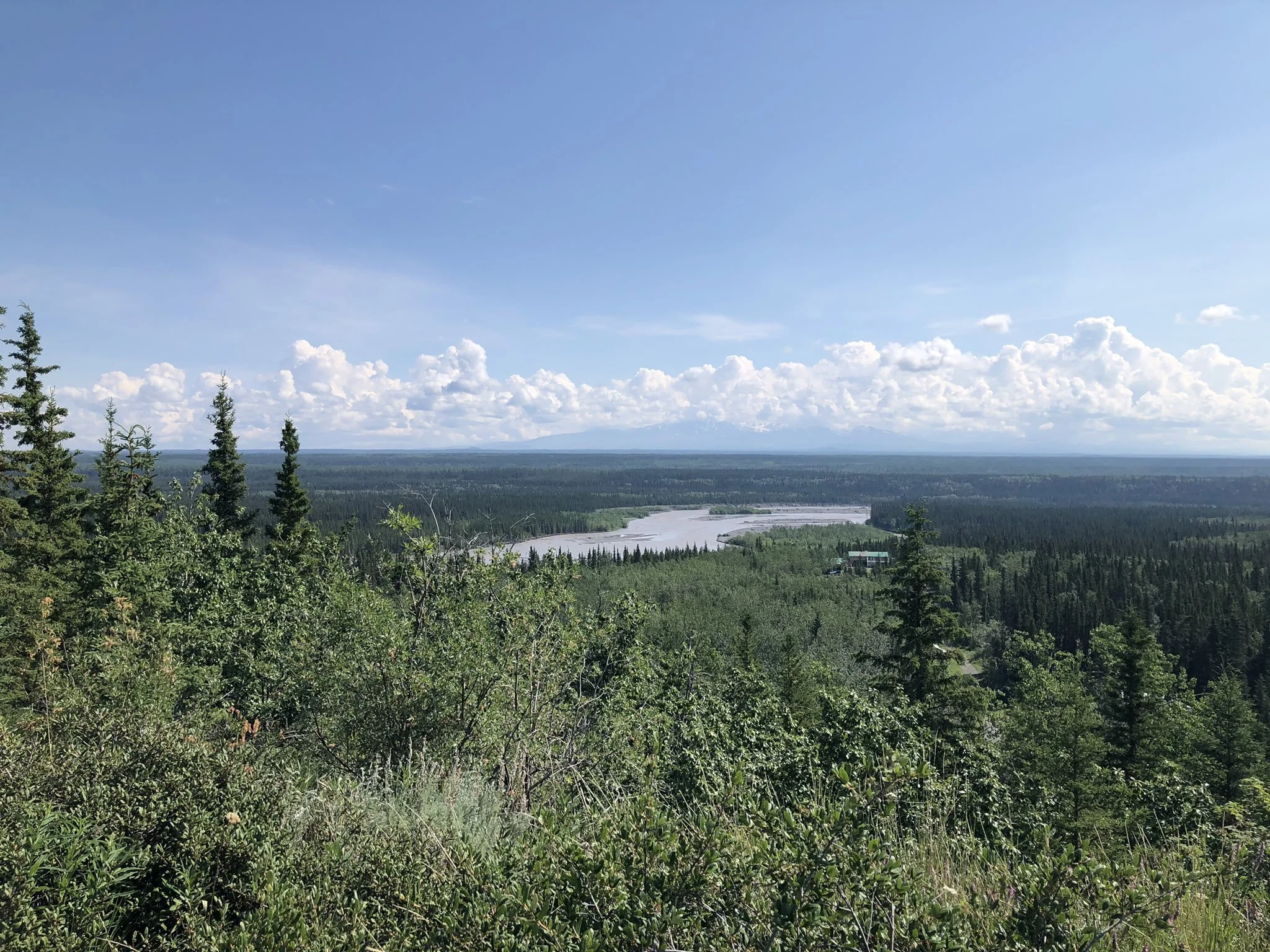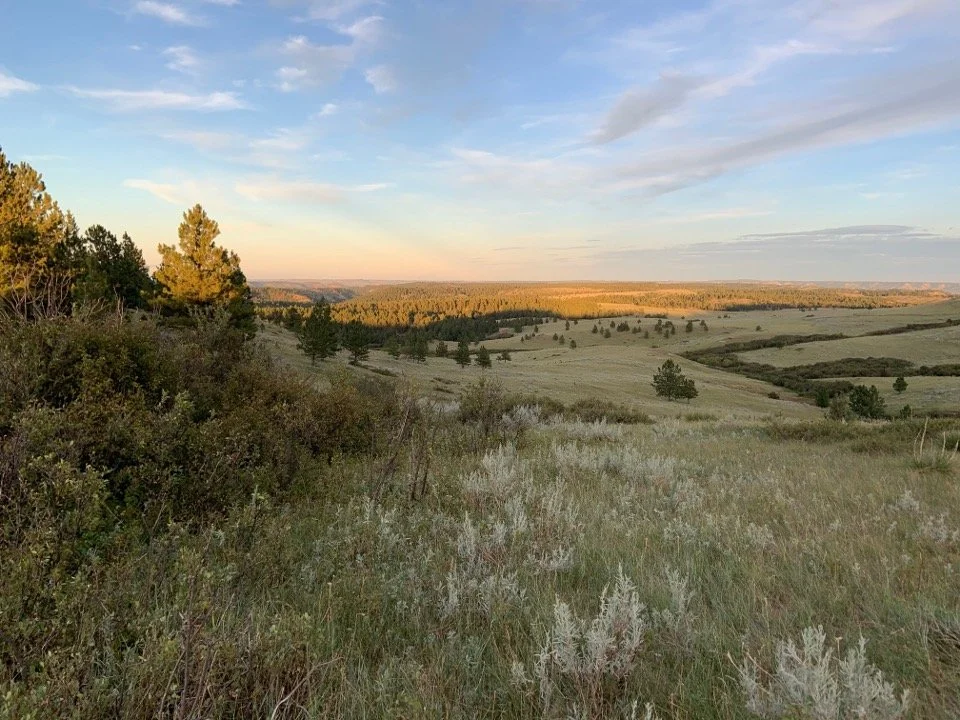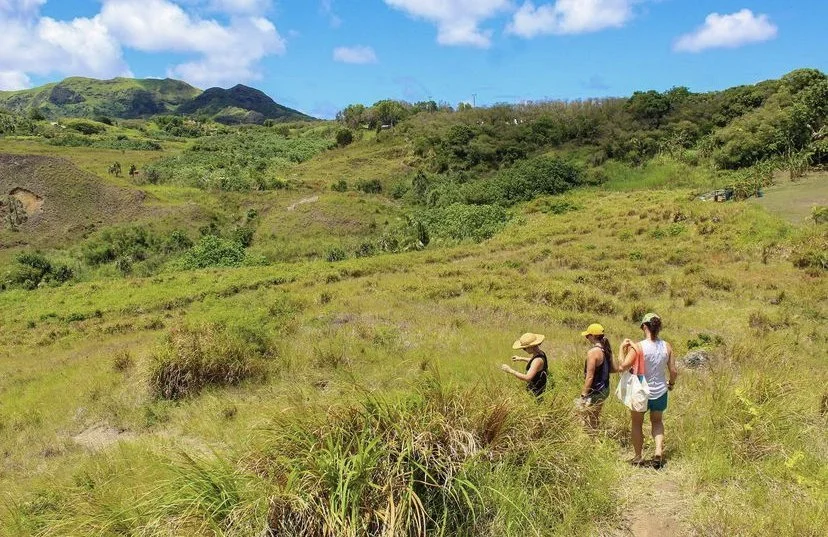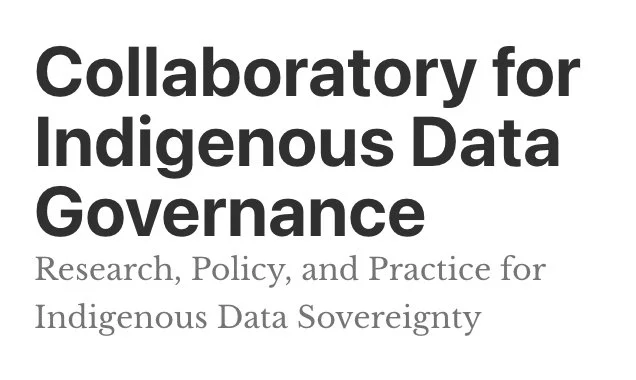who we are
Radically transforming data, policy, and governance for Indigenous Peoples By Indigenous Peoples.
The Indigenous Data Alliance is an independent non-profit organization catalyzing positive change through data and policy by Indigenous Peoples for Indigenous Peoples on Indigenous lands. We are an Indigenous women-led community of data scientists, researchers, policy analysts, and relatives with an all-Indigenous Board of Directors and majority Indigenous staff.
Our values
ida is an alliance of
our Team
-

Dr. Desi Small-Rodriguez
CO-FOUNDER, DIRECTOR DATA WARRIORS LAB
Dr. Desi Small-Rodriguez is a citizen of the Northern Cheyenne Nation and Chicana. She is the Executive Director of the Data Warriors Lab, a mobile Indigenous data science laboratory that partners with tribal nations and Indigenous communities to rebuild data for strong self-determined Indigenous futures. She co-founded the U.S. Indigenous Data Sovereignty Network and is a founding member of the Global Indigenous Data Alliance. Dr. Desi is also an assistant professor at the University of California, Los Angeles. As a social demographer and Indigenous statistician, her research and praxis center on disrupting settler colonial systems and rebuilding data by Indigenous Peoples for Indigenous Peoples.
-
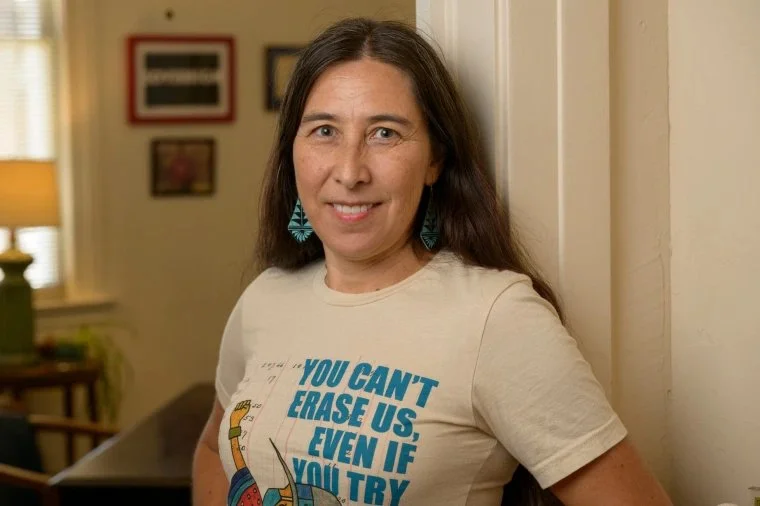
Dr. Stephanie Carroll
CO-FOUNDER, DIRECTOR COLLABORATORY FOR INDIGENOUS DATA GOVERNANCE
Dr. Stephanie Carroll is a citizen of the Native Village of Kluti-Kaah in Alaska and of Sicilian-descent. She directs the Collaboratory for Indigenous Data Governance, a research network that develops research, policy, and practice innovations for Indigenous Data Sovereignty. Her research, teaching, and engagement seek to transform institutional governance and ethics for Indigenous control of Indigenous data, particularly within open science, open data, and big data contexts. Stephanie co-edited the book Indigenous Data Sovereignty and Policy and co-led the publication of the CARE Principles for Indigenous Data Governance. Stephanie co-founded the US Indigenous Data Sovereignty Network and co-founded and chairs the Global Indigenous Data Alliance (GIDA) and the Indigenous Data Working Group for the IEEE P2890 Recommended Practice for Provenance of Indigenous Peoples' Data.
-

Dr. Riley Taitingfong
CO-FOUNDER, DIRECTOR US INDIGENOUS DATA SOVEREIGNTY NETWORK
Dr. Riley Taitingfong is a Chamoru researcher and educator working on issues of environmental justice, Indigenous self-determination, emerging technologies, and community engagement. She completed her PhD in Communication at the University of California San Diego, where her project focused on Indigenous governance of genetic engineering technologies known as gene drives. Riley is currently a postdoctoral researcher with Udall and the Native Nations Institute, working on the implementation of CARE Principles of Indigenous Data Governance within data repositories. As a Chamoru researcher, Riley is committed to building cross-movement solidarity among Indigenous communities from Oceania to Turtle Island.
-
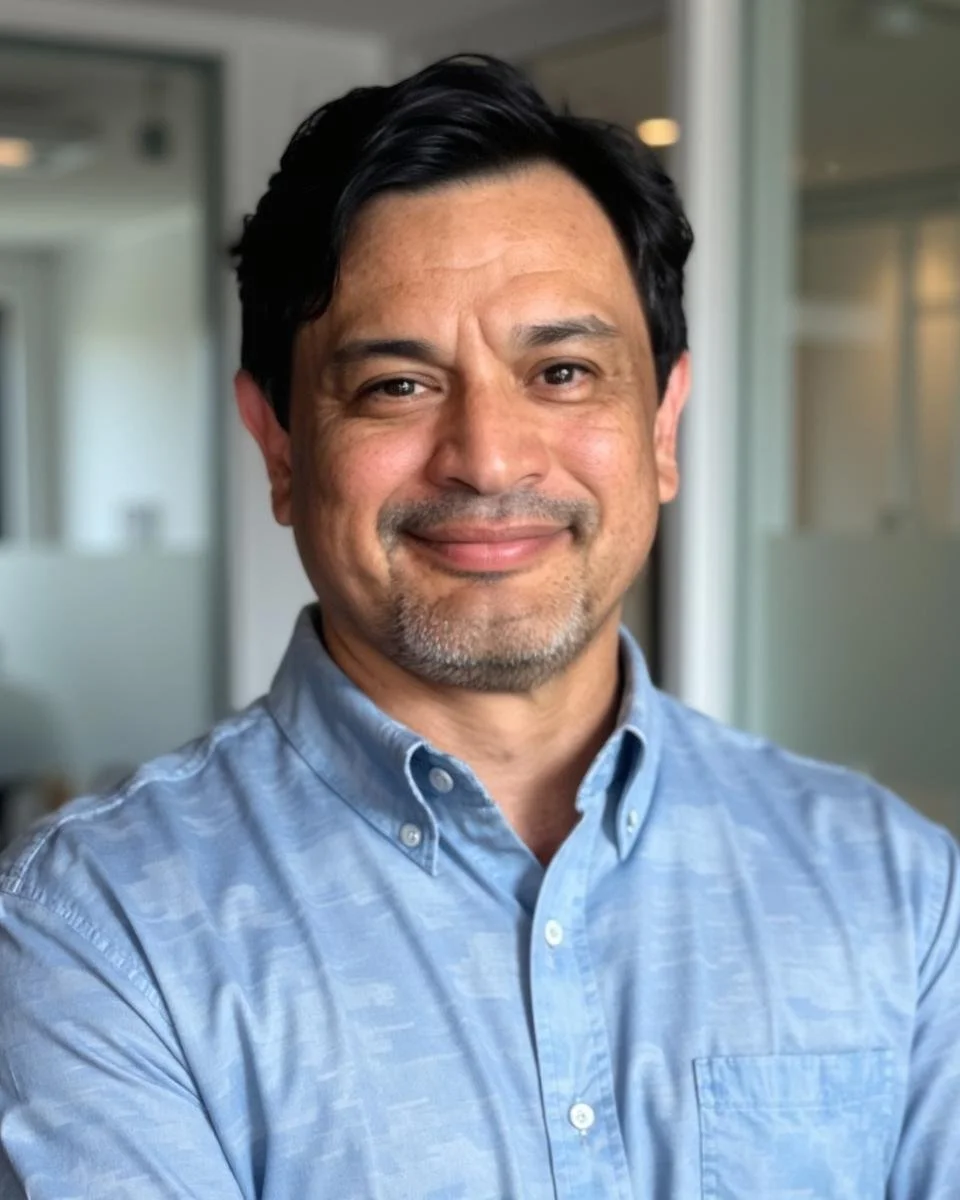
Dr. Randall Akee
CO-FOUNDER
Director Project on Indigenous Governance and Development, Harvard
Randall Akee was a Professor at the University of California, Los Angeles in the Department of Public Policy and American Indian Studies. At UCLA he served as the Chair of the American Indian Studies Department. He completed his Ph.D. at Harvard University in June 2006. Prior to his doctoral studies, Dr. Akee earned a Master’s degree in International and Development Economics at Yale University. He also spent several years working for the State of Hawaii Office of Hawaiian Affairs Economic Development Division.
Dr. Akee is a faculty research fellow at the National Bureau of Economic Research (NBER) in Labor Studies and the Children’s Groups. He is also a non-resident fellow at the Brookings Institution in Economic Studies and at the Institute for the Study of Labor (IZA), a faculty affiliate at the UCLA California Center for Population Research (CCPR) at UCLA and a faculty affiliate at UC Berkelely Center for Effective Global Action (CEGA). His main research interests are Labor Economics, Economic Development and Migration.
Previous research has focused on the determinants of migration and human trafficking, the effect of changes in household income on educational attainment, the effect of political institutions on economic development and the role of property institutions on investment decisions. Current research focuses on income inequality and immobility by race and ethnicity in the US. Dr. Akee has worked on several American Indian reservations, Canadian First Nations, and Pacific Island nations in addition to working in various Native Hawaiian communities.
From August 2006 until August 2009 he was a Research Associate at IZA, where he also served as Deputy Program Director for Employment and Development. Prior to UCLA (2009-2012), he was an Assistant Professor at Tufts University and spent AY 2011-2012 at the Center for Labor Economics at University of California, Berkeley.
In June 2013 he was named to the U.S. Census Bureau’s National Advisory Committee on Racial, Ethnic and Other Populations.
-

Dr. Dominique David-Chavez
CO-FOUNDER
Director, Indigenous Land & Data Stewards Lab
Dr. David-Chavez is Director of the Indigenous Land & Data Stewards Lab, and Assistant Professor of Indigenous Natural Resource Stewardship at Colorado State University’s Forest and Rangeland Stewardship Department, working in partnership with the Collaboratory for Indigenous Data Governance. She draws from her experiences as a multicultural Caribbean Indigenous (Arawak Taíno) community member, research scientist, educator, and learner in her scholarship and practice. In doing so, she holds an intergenerational commitment towards supporting culturally grounded community members as researchers and science leaders, restoring pathways for knowledge regeneration with the original stewards of Indigenous knowledge systems and the lands, waters, lifeways and languages within which they are embedded.
-
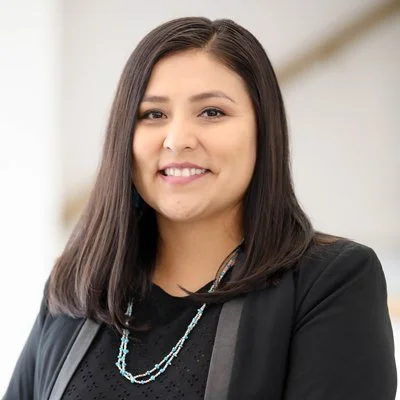
Dr. Cheryl Ellenwood
CO-FOUNDER
Director, Indigenous Organizations and Data Lab
Cheryl Ellenwood (she/her) is a citizen of the Nez Perce Nation and also Navajo. She is an Assistant Professor at Washington State University. Her research examines issues of equity and justice in the public and nonprofit sectors. She has worked with Native-led organizations and advocates for solutions led by Indigenous organizations and an Indigenous Data Sovereignty framework. Her current research partnership with the Nez Perce is a political and cultural history of the Nez Perce Fisheries’ transfer of authority to full management of two fish hatcheries. It argues that their success in salmon recovery is informed by cultural knowledge and a commitment to stewarding life sources. Cheryl holds a PhD in Public Management from the University of Arizona and a MA in American Indian Studies from the University of California, Los Angeles. She is also the Director of the Indigenous Organizations and Data Lab, a member of the IndigeLab Network, and an alum and collaborator of the Collaboratory for Indigenous Data Governance.
-
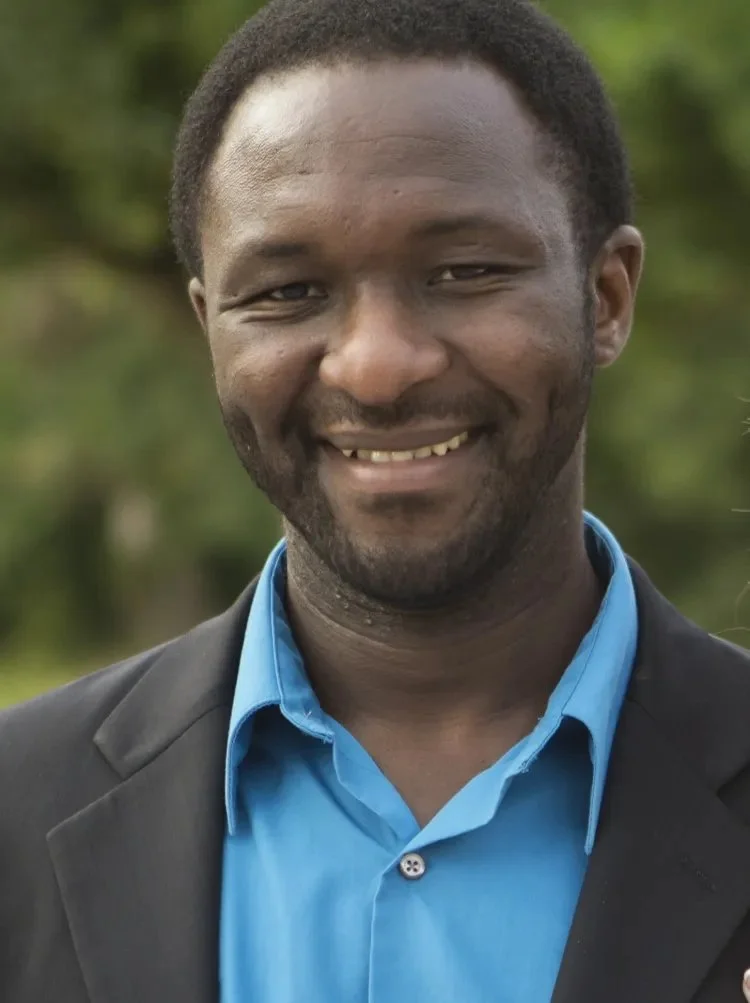
Dr. Ibrahim Garba
CO-FOUNDER
Dr. Ibrahim Garba (Karai-Karai), MA, JD, SJD, is Assistant Research Professor (Mel and Enid Zuckerman College of Public Health) and Senior Researcher (Native Nations Institute) at the University of Arizona. He has graduate training in philosophy and international human rights law. He has also completed fellowships in bioethics and health policy. His legal scholarship has explored the evolution of collective rights in international law. His current research assesses the capacity of international human rights law to provide an ethics framework for the governance of data from Indigenous Peoples for research and other uses.
-
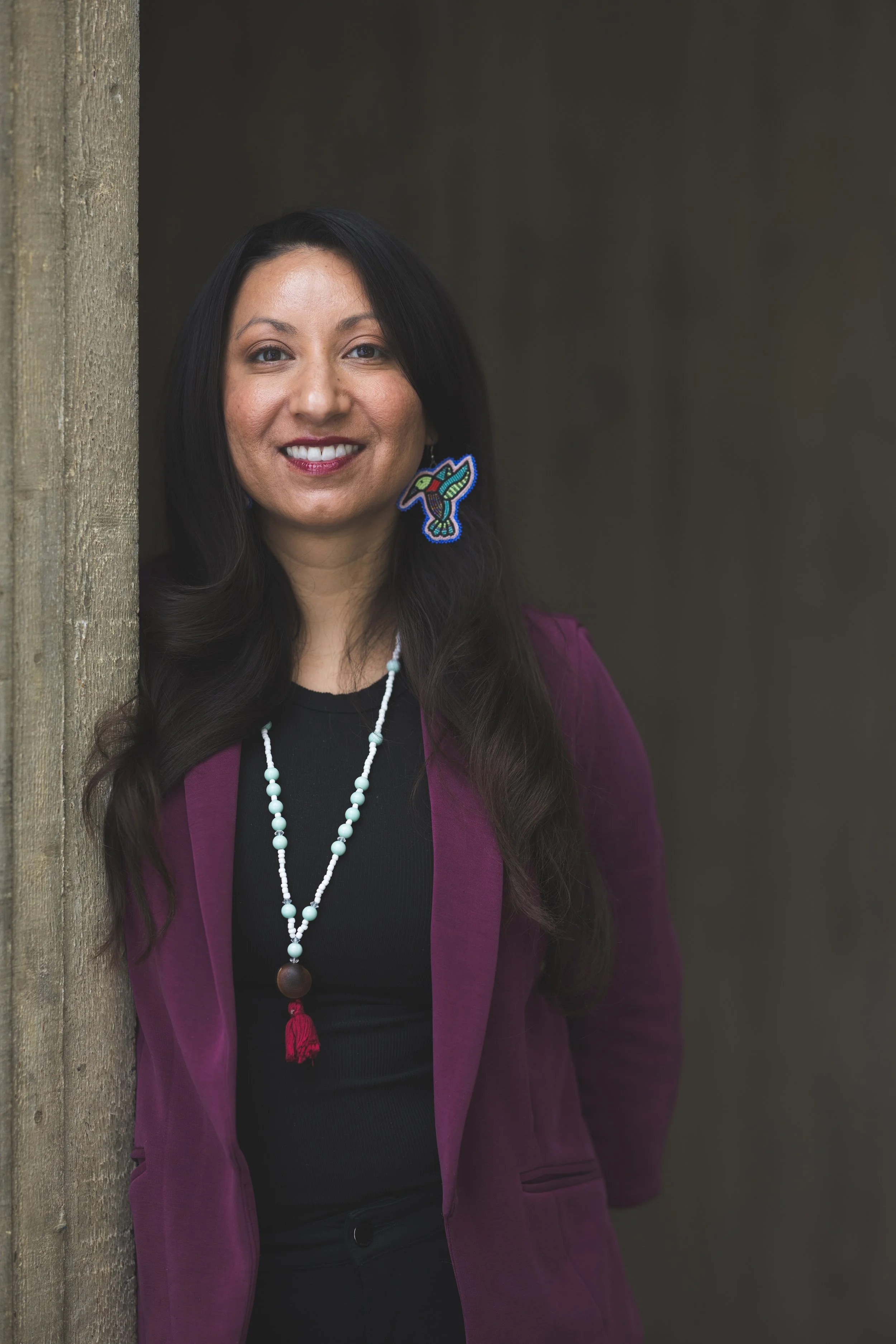
Dr. Lydia Jennings
CO-FOUNDER
Director, Sovereign Soils Research Collaborative
Dr. Lydia Jennings (she/her) is an environmental soil scientist. Lydia, citizen of the Pascua Yaqui Tribe (Yoeme) and Huichol (Wixáritari), earned her Bachelors of Science from California State University, Monterey Bay in Environmental Science, Technology and Policy. She completed her Ph.D. at the University of Arizona in the Department of Environmental Sciences, with a minor in American Indian Policy.
Her research interests are in soil health, environmental data stewardship and science communication. Lydia is a 2014 University of Arizona NIEHS Superfund Program trainee, a 2015 recipient of National Science Foundation’s Graduate Research Fellowship Program, a 2019 American Geophysical Union “Voices for Science” Fellow, a 2020 Native Nations Institute Indigenous Data Sovereignty Fellow, and a 2021 Data Science Fellow. Lydia was a Presidential Postdoctoral Fellow at Arizona State University (School of Sustainability) and Research Fellow at Duke University (Nicholas School of the Environment) prior to her current role as an Assistant Professor in Environmental Studies at Dartmouth College.
Outside of her scholarship, Lydia is passionate about connecting her scholarship to outdoor spaces, through running and increasing representation in outdoor recreation. Lydia has been recognized as a “trail runner changing the world” by REI Co-op and as an “Environmental Sports Champion” by the Lewis Pugh Foundation.
-
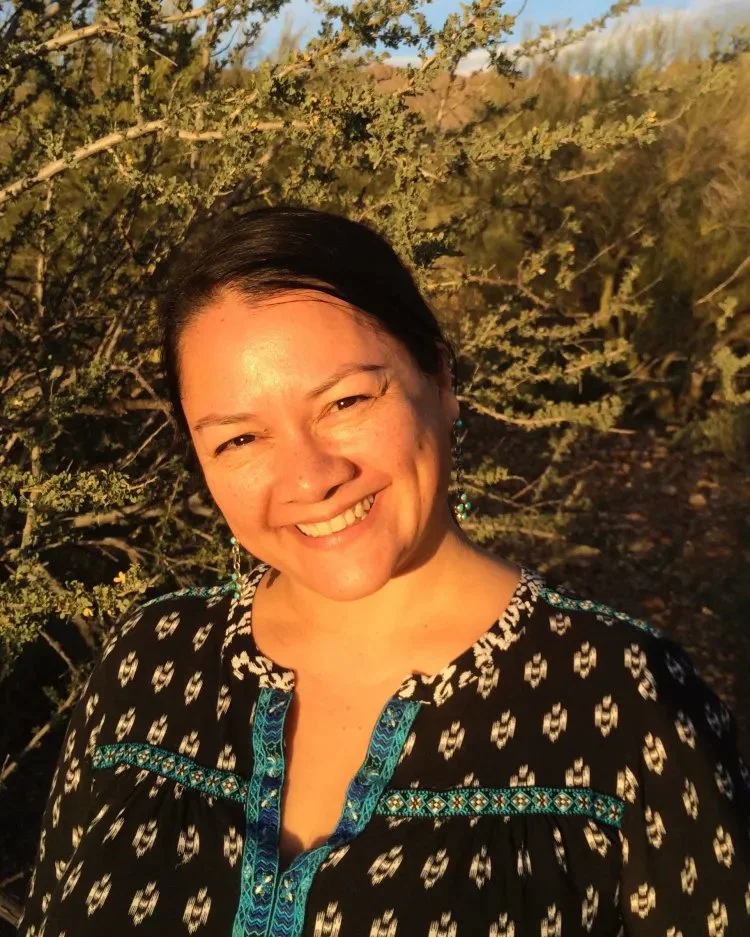
Dr. Christina Oré
CO-FOUNDER
Christina E. Oré, MPH, DrPH, an Andean descendant of Huancavelica -Ayacucho Perú and Irish. Born and raised in O’odham and Yoeme lands, she has worked in public health for over twenty years. Dr Oré is a researcher of systems alignment for Indigenous health praxis/practice: Indigenous data governance, tribal data systems strengthening, traditional healing systems, multi-media/creative methodologies, relational and implementation sciences. Dr Oré is a member of the Collaboratory for Indigenous Data Governance, University of Arizona; co-leads with Dr Boulton the Whakauae Māori Research -Health Services and Seven Directions collaboration initiative; and is a member of the Indigenous working group, World Federation of Public Health Associations. She has a BA in Latin American Studies from Oberlin College, 1991. Dr Oré received her MPH in community health practice, 2001, and DrPH in public health policy and management, 2018, from the Zuckerman College of Public Health at the University of Arizona.
-

Celeste Kimimila Terry
PROGRAM COORDINATOR
Celeste Kimimila Terry (Oglala Lakota) is a researcher, and data scientist whose tiospaye (family) is of the Wanbli Hohpi located in Wanblee, South Dakota. Born in Boston and raised in Denver, Colorado; Celeste holds a Bachelor of Arts in Applied Indigenous Law & Science from Metropolitan State University of Denver. She has also developed and taught STEM programming for Native youth and participated in national Native youth leadership initiatives, including the first White House Tribal Youth Gathering.
With 21 years of experience in web development, and over a decade of experience in systems design, and digital strategy; Celeste’s work focuses on building ethical, sovereignty-aligned data infrastructures for Indigenous communities. She specializes in GIS mapping, Indigenous Data Sovereignty frameworks, and continuous consent–based data protocols, and serves as a core contributor to an Indigenous-led ICWA research team, where she supports methodological design, mapping, and digital storytelling.
Celeste is a founder of Wawokiye LLC, an Indigenous professionals’ collective dedicated to culturally grounded research, data systems development, and digital resource creation. In 2025, her team was selected as a semi-finalist for the MIT Solve Indigenous Communities Fellowship for their work advancing tribal governance transitions and Indigenous data infrastructures.
Across her career, Celeste has worked in website development, STEM education, Native youth advocacy, radio production, and community-based research. Her work centers on strengthening self-determination, eradicating systemic erasure, and supporting Indigenous Nations in building systems and processes grounded in their own laws, practices, and knowledge.
-
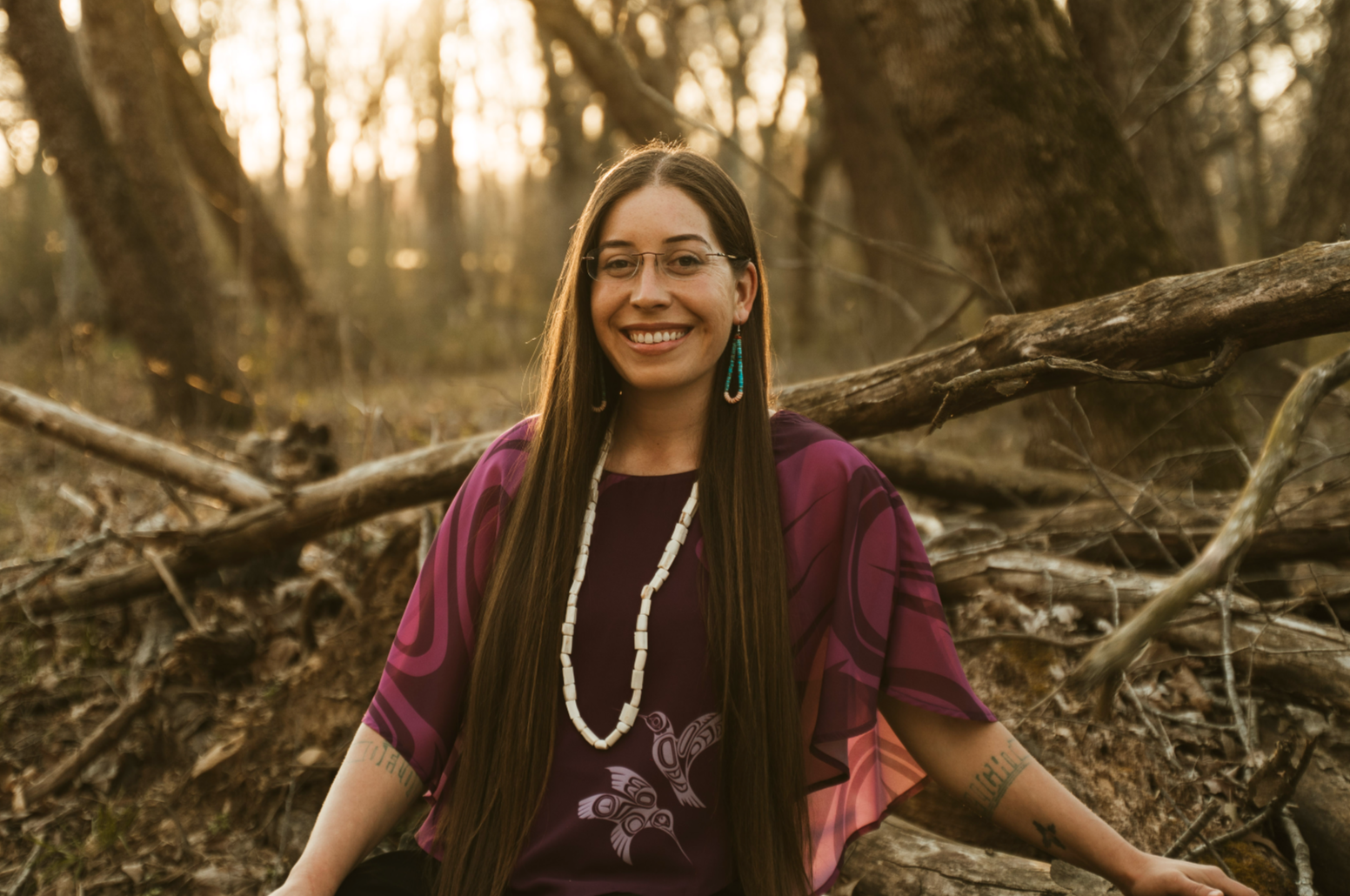
Jacquelyn (Jackie) Cordova
COMMUNICATIONS & SOCIAL STRATEGY
Jacquelyn (Jackie) Cordova is a communications strategist and Indigenous data practitioner. She holds a B.A. in Marketing and Communications from Columbia College Chicago and an M.A. in Indigenous Studies from the University of Alaska Fairbanks, where her graduate research focused on developing a community-driven model for ensuring the continuation and integrity of Indigenous knowledge and data transfer processes in the digital era.
She is the founder of Northern Vision Co., a creative and strategic communications agency curating meaningful content through story, strategy, and design. She has assisted numerous Native-led nonprofits, education and research institutions, tribal governments, and private companies in strengthening communications strategies, building respectful and reciprocal cross-cultural stakeholder engagement, and aligning public-facing work with cultural and corporate protocols.
Jackie contributes to ongoing GIS mapping and applied science research efforts focused on ecological sustainability, land and water protection, and environmental stewardship. Her work includes applied research through initiatives such as the NASA DEVELOP National Program within NASA’s Applied Sciences Department, where she was part of an interdisciplinary team using geospatial data to address environmental and policy challenges related to sustainable land management throughout Pueblo territories in the Southwest. She is also involved in related Indigenous-led data initiatives rooted in He’ Sápa (the sacred Black Hills).
She is of Pueblo, Diné, Guatemalan, and Swedish descent and follows the protocols and traditions passed on to her by her Oglala Lakota hunka relatives and Elders, including upholding the responsibility of being “a friend and ally to all life.”
BOARD OF DIRECTORS
-
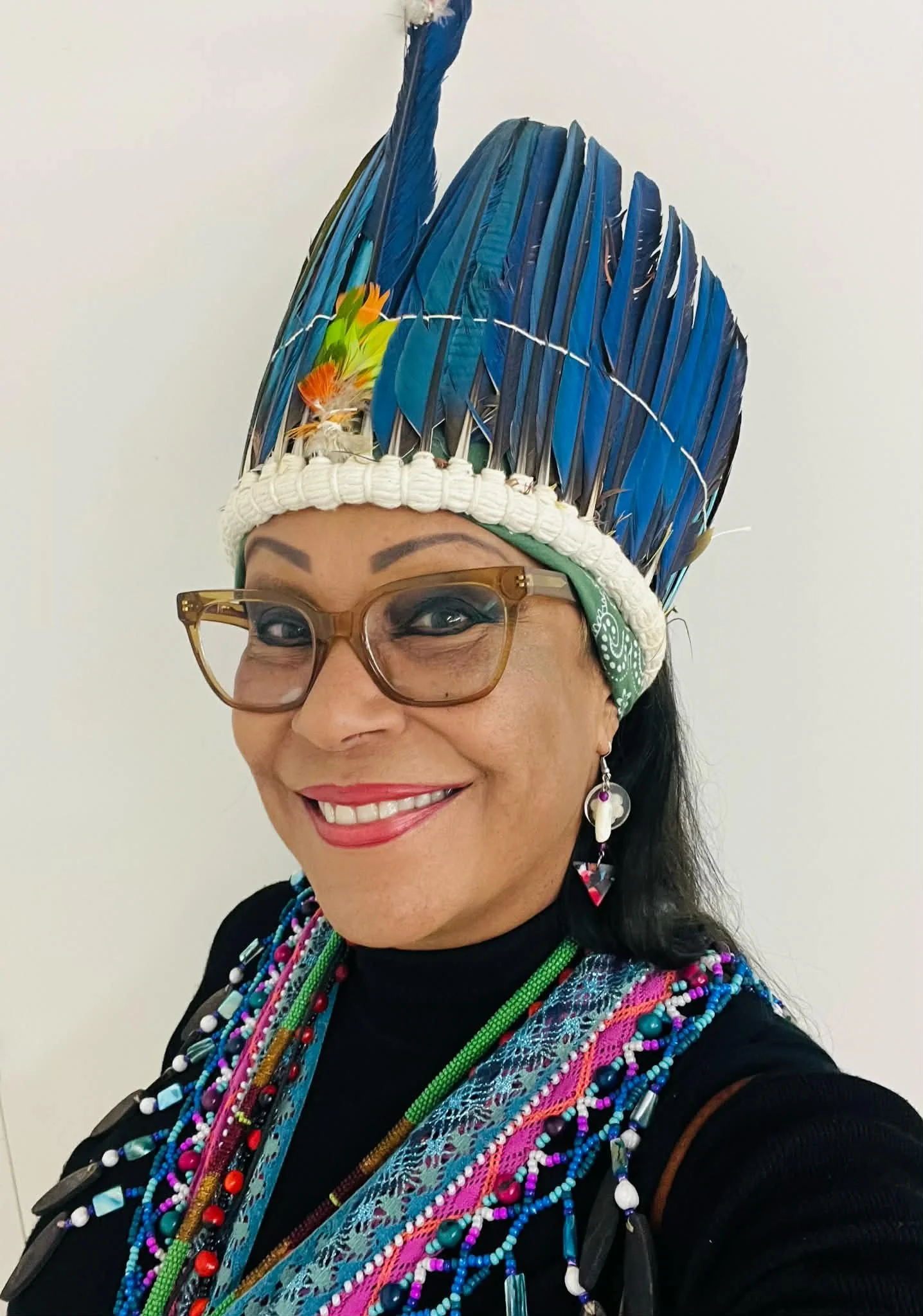
Tai Pelli (Guainia Taíno, Borikén)
Tekina Tai Pelli is a writer, a Public Speaker and a Borikén Taíno Arawak. (Tekina means Teacher/Historian in Taíno). Tai is the International Relations & Human Rights Officer of the United Confederation of Taíno People, Co-founder and Co-President of the Caribbean Amerindian Development Organization and Board Officer of the International Indian Treaty Council. She is an avid Advocate and Expert on: Human Rights; Environmental Violence & its impacts on Reproductive Health; Food Sovereignty & Security; Women Rights; Treaties and Indigenous Peoples' Rights, among other subject matters. Her work spans from the local to the international level. She provides training, conducts studies and participates in many conferences and events globally. Tai served as the Global Political Consultant for the 2nd World Conference of Indigenous Women, as well as the Global Indigenous Representative on the Coordinating Committee of the Civil Society and Indigenous Peoples Mechanism which advises the UN Committee on the World’s Food Security on global policy. She represented the Insular Caribbean at the “Indigenous Summit on Just Transition; Indigenous Perspectives, knowledge, and lived Experiences” in Geneva, Switzerland, as well as at the COP 16 for the UN Convention to Combat Desertification in Riyadh, Saudi Arabia. Tai was the Indigenous Delegate representing the Continental and Insular Caribbean at the 2025 Global Meeting of the Indigenous Peoples’ Forum of the UN International Fund for Agricultural Development (IFAD) in Rome.
-

Dr. Malia Villegas (Native Village of Afognak)
Dr. Malia Villegas is an enrolled member of the Native Village of Afognak in Alaska, where she also serves on the Tribal Council. Dr. Villegas serves as the Senior Vice President of Community Investments at Afognak Native Corporation, where she oversees strategic development, government and public relations, lands and natural resources, shareholder and community investments, communications, and impact measurement. Dr. Villegas is on various boards including that of Data for Indigenous Justice and was the previous Director of the National Congress of American Indians (NCAI) Policy Research Center.
-

Donald Warne, MD, MPH
Dr. Warne serves as the Co-Director of the Center for Indigenous Health and as a tenured, Full-Professor at the Bloomberg School of Public Health at Johns Hopkins University. Dr. Warne is also the Senior Policy Advisor to the Great Plains Tribal Leader’s Health Board in Rapid City, SD. Dr. Warne is a member of the Oglala Lakota tribe from Pine Ridge, SD and comes from a long line of traditional healers and medicine men. He received his MD from Stanford University School of Medicine in 1995 and his MPH from Harvard School of Public Health in 2002.
